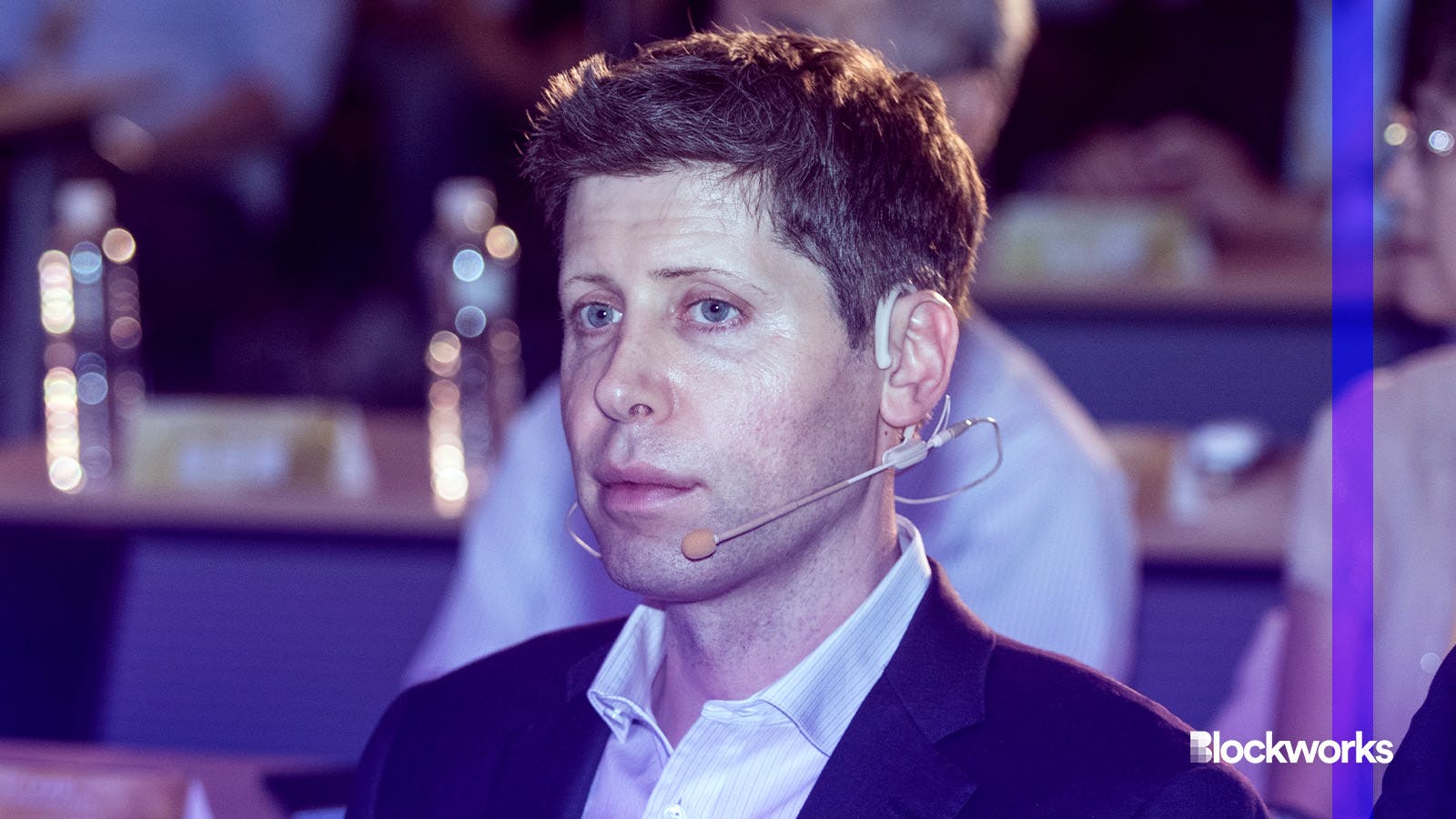Sam Altman’s OpenAI exit won’t stop the use of ChatGPT among crypto devs, at least for now
Like much of the tech world, crypto’s use of ChatGPT has been growing. Despite founder Sam Altman’s ouster, decentralized AI projects don’t seem ready to replace it

Former OpenAI CEO Sam Altman | jamesonwu1972/Shutterstock modified by Blockworks
Former OpenAI CEO Sam Altman is associated with crypto by virtue of his founding role in Worldcoin — but his departure from AI powerhouse OpenAI has implications of its own.
Altman was fired Friday after a boardroom coup caused by an alleged lack of candor with the board. Altman has already taken a job at Microsoft — and more than 500 OpenAI employees threatened to resign in a letter to the board.
OpenAI’s most advanced product, the ChatGPT large language model (LLM), is used by crypto developers and in crypto applications. But faith in the AI startup has been shaken by the past few turbulent days.
Elsewhere, crypto teams are seeking to create wholly decentralized AI products — though development of such products lags far behind the work of OpenAI.
Read more: AI needs to be decentralized for the same reasons that money needs to be
ChatGPT is capable of writing and troubleshooting code written in Solidity, the programming language for Ethereum smart contracts, making it a potentially helpful tool for developers. A pseudonymous developer named CroissantETH made a ChatGPT-enabled app whereby ERC-20 tokens can be created with a one-sentence command.
Antonio Viggiano, founder of smart contract testing firm Fuzzy, released an extension that uses ChatGPT to audit code for potential vulnerabilities.
“I believe devs use ChatGPT a lot, probably every day or many times a week,” Viggiano said.
However, problems persist. Viggiano noted ChatGPT will often provide incorrect responses, causing developers to have to edit code manually. Fernando Rodriguez Hervias, CEO of Web3 developer studio PragmaLayer, said chatbots ultimately cannot be relied upon to keep smart contracts secure.
“What if [the] contract gets hacked? Will you blame AI?” Hervias said in a Telegram message.
Ritual founder Niraj Pant said that it’s partially because of those shortcomings that ChatGPT isn’t commonly used in mission-critical capacities. However, AI chatbot use cases are growing, like reading a protocol’s documents and being able to troubleshoot problems in a chat window with builders on the platform.
Pant said OpenAI’s boardroom drama underscores a need for diversification in the field of LLMs, currently dominated by OpenAI.
“Developers I know that are building on OpenAI stuff are not even sure if their apps will work on Friday after employees leave, at least allegedly from the reports,” Pant said.
Pant’s startup Ritual announced a $25 million raise earlier this month to help Web3 companies interact with AI.
If Altman’s dismissal from OpenAI spells stagnation for the AI company — which was reportedly seeking to raise funds at an $80 billion valuation in late October — crypto’s growing crop of AI projects could theoretically stand to gain.
However, Pant said attempts at open-source answers to ChatGPT are still playing “catch-up” with the likes of OpenAI’s work.
A pseudonymous developer named Moon Dev, who uses ChatGPT to build quantitative trading tools for crypto, said in a direct message that they remain unimpressed with crypto AI products as they exist today.
“[I] haven’t seen anything even close,” they told Blockworks.
Get the news in your inbox. Explore Blockworks newsletters:
- The Breakdown: Decoding crypto and the markets. Daily.
- 0xResearch: Alpha in your inbox. Think like an analyst.






